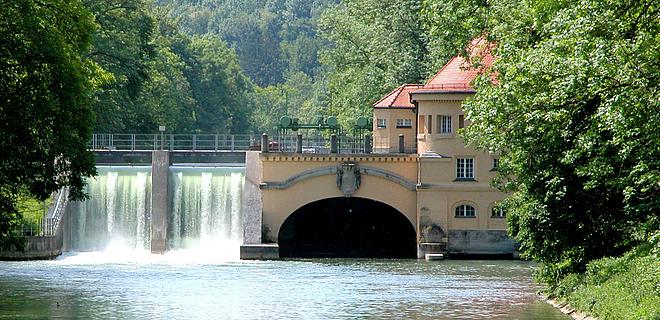Last year, Munich was named winner of the Green Energy category at the inaugural C40 & Siemens City Climate Leadership Awards for its 100 per cent Green Power by 2025 Plan. But it was five years ago that the German city first set itself this ambitious target.
Back in 2009, in cooperation with the city-owned utility company Stadtwerke Muenchen (SWM), the City of Munich committed to a goal of producing enough green electricity in its own power plants by 2025 to meet the complete demand of the municipality — at least 7.5 billion kilowatt hours (kWh) per year.
Europe, by contrast, has a target of 20 per cent renewables by 2020.

So how is Munich tracking in 2014? Will it meet its 2025 deadline and become the first city in the world with over a million inhabitants to achieve this goal? And if so, how?
“We forced our utilities company… to invest in renewable energy,” Hep Monatzeder, the former mayor of Munich, told CNBC’s Innovation Cities in an interview this week. “All the other big cities have to go this way, otherwise we will not protect the earth.”
Accordingly, SWM launched its Renewable Energies Expansion Campaign with investments adding up to a total of €9 billion. And already, with all projects currently in progress due to be completed this year – including a hydro power plant on the river Isar, which produces enough electricity to supply 4,000 Munich homes a year – SWM will have a generation capacity of over 3.5 billion kWh of green electricity from its own plants, including from wind, water, geothermal, solar and biomass power.
According to the company’s website, all that adds up to 47 per cent of Munich’s power consumption – significantly more than the requirements of the city’s approximately 800,000 households and underground rail and tram systems. Further projects with “great potential” – particularly in wind power, which SWM describes as is “the most cost efficient of the renewable energies” – are said to be in planning.
As part of the plan, SWM also established a virtual power plant – a decentralized network of small-scale energy plants and large industrial consumers that is pooled and operated like a single system, and has a combined output of 80MW.
Outside of Munich, SWM has also been investing in renewables projects around Europe, including a solar heat plant in Andalusia, Spain and off shore wind farms in the North Sea – the clean electricity from which is fed back into the integrated European grid.

“If you save CO2 emissions in Munich or in Spain, it doesn’t matter, it is important that you… save them,” Florian Bieberbach, CEO of Stadtwerke München, told CNBC.com.
“This is why this political aim does not mean technically to deliver the electricity in Munich, it just means Munich takes its share in combatting climate change.”
SWM’s long-term vision also includes producing all of the district’s heat from renewable energy sources including geothermal energy and biogas until 2040. Currently, district heat is generated in highly efficient co-generation power plants using fossil fuels.
“Besides energy production our policy to mitigate climate change addresses all other sectors: industry, trade and services, private households, transportation and the activities of the city administration itself,” said Monatzeder.
“Hence, we support companies and households when they save energy, increase their energy efficiency, and are willing to use renewable energies. In that regard we provide information, consultancy and subsidies.
“We also try to integrate sustainability into all areas of our policy: fiscal policy, economic and social policy, environmental policy and city planning. The overall concept for Munich’s sustainable spatial development follows the keywords ‘compact, urban, green’ and demands to manage and use land more efficiently and to focus on the reduction of traffic. Apart from the latter efforts, Munich gives priority to public transport and the promotion of walking and cycling.”










